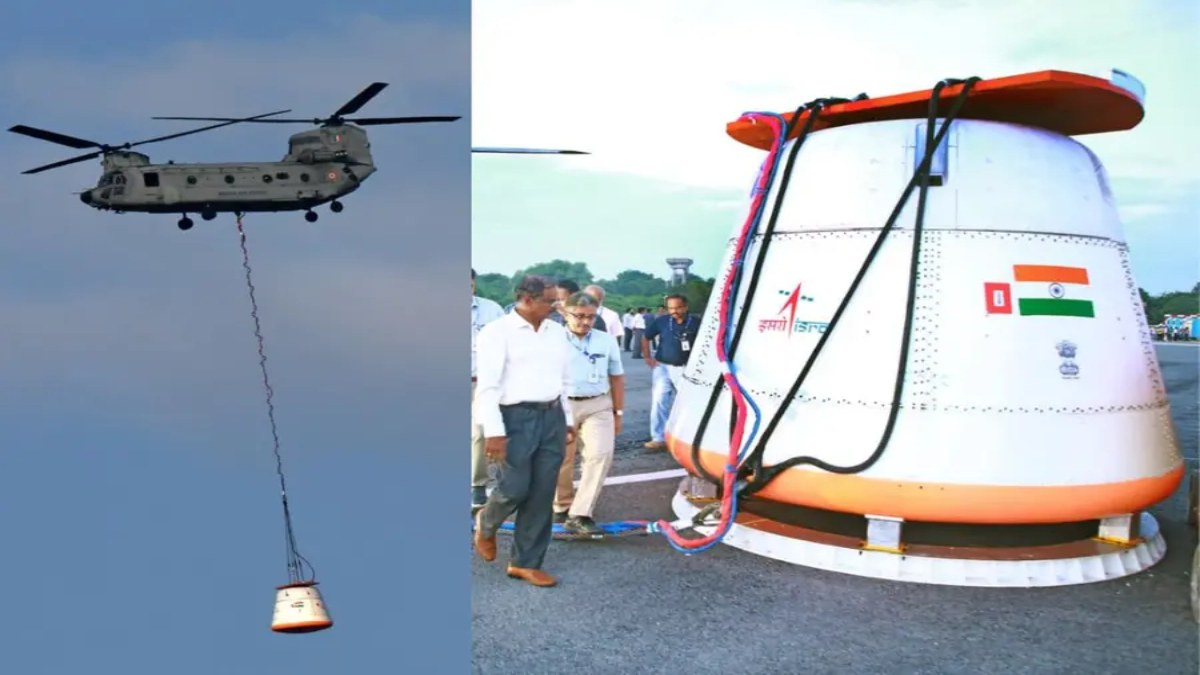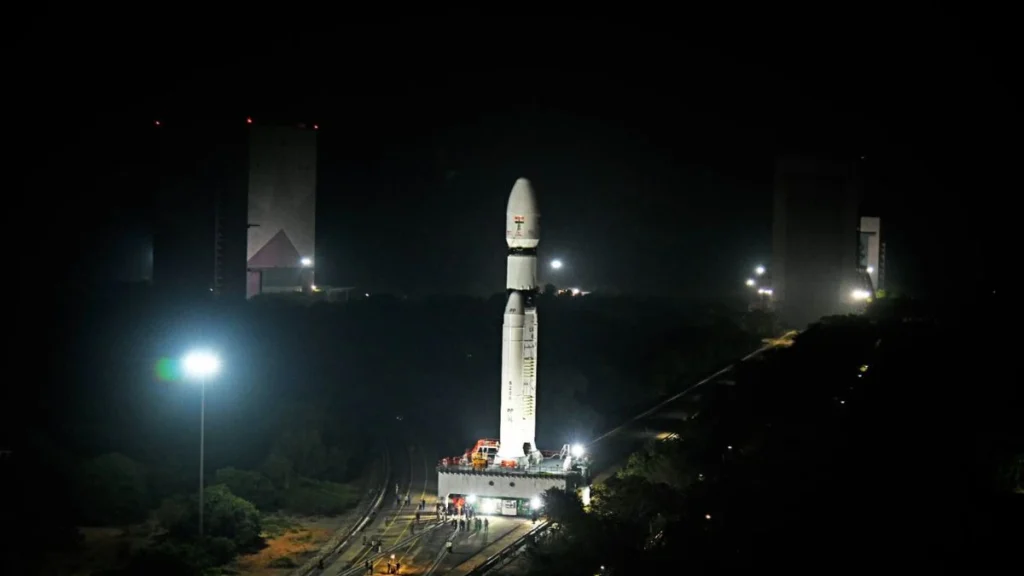Now Reading: ISRO’s Gaganyaan Mission: Successful Air Drop Test
-
01
ISRO’s Gaganyaan Mission: Successful Air Drop Test
ISRO’s Gaganyaan Mission: Successful Air Drop Test

In a significant stride towards its ambitious Gaganyaan mission, the Indian Space Research Organisation (ISRO) has successfully conducted a crucial air drop test. This test is a pivotal part of the preparations for India’s first human spaceflight, which aims to launch by December 2025. The test involved dropping a crew module from a helicopter to evaluate its landing and recovery systems, marking a major milestone in India’s journey to send humans into space.
Details of the Test
The air drop test was carried out in late October 2025. For this test, ISRO engineers utilized a Chinook helicopter from the Indian Air Force. . The crew module was released from an altitude of about 4 kilometers. As the module descended, its parachute systems and landing mechanisms were activated. These systems are designed to ensure the safe return of astronauts to Earth. During the test, scientists meticulously assessed the module’s descent velocity, its impact on landing, and other critical data points.
Success and Significance of the Test
ISRO has declared the test a complete success. This outcome confirms that the Gaganyaan’s landing systems and parachutes are functioning correctly as designed. Such tests are paramount for mitigating the risks associated with a real mission. A failure in this system could jeopardize the lives of the astronauts. The success of this test has further boosted ISRO’s confidence in the Gaganyaan mission’s readiness.
Gaganyaan Mission: India’s Next Frontier in Space
The Gaganyaan mission is India’s inaugural human spaceflight project. Its objective is to send a crew of three astronauts into a low-Earth orbit and bring them back safely. This mission will showcase India’s technological prowess in space to the world. A successful mission would place India among an elite group of nations—including the United States, Russia, and China—that have launched humans into space. The Gaganyaan mission will not only be a landmark achievement for India’s space program but also an inspiration for young minds in the fields of science, technology, and engineering.










